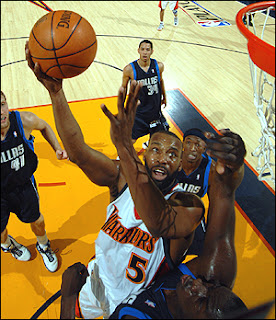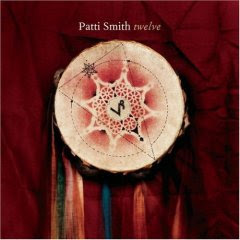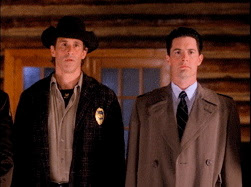 So, for the first time in my sports-loving life I actually predict success for a team that hails from Dallas, and this is how they repay me? Gee, thanks guys. I can only imagine the tantrum that will erupt from Mt. Cuban tomorrow morning.
So, for the first time in my sports-loving life I actually predict success for a team that hails from Dallas, and this is how they repay me? Gee, thanks guys. I can only imagine the tantrum that will erupt from Mt. Cuban tomorrow morning.Tonight's game against Golden State was a classic; by far, the best of the playoffs thus far. But once again, the Mavericks showed a disturbing propensity for gagging in the clutch; Golden State dominated the end of every quarter, and Dallas only hit the key threes after the game was out of reach. Once again in a critical game, the Mavericks lost it more than their opponent won it.
There's no doubt that they could come back, but it sure looks like they're doubting themselves now. And prediction notwithstanding, you can sign me up for the Warriors bandwagon - at this point, proving Chuckles the Clown Barkley wrong would more than make up for a bad prediction. It's hard to know what goes through Barkley's mind sometimes - I'm going to give him the benefit of the doubt, but he sure sounded homophobic tonight with his comments about the Bay Area. But homophobic or not, he was definitely an ass.
Go Warriors!


